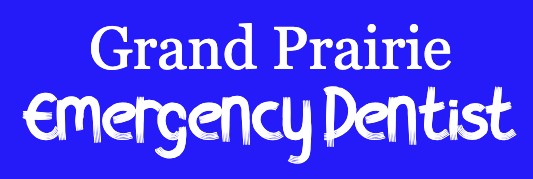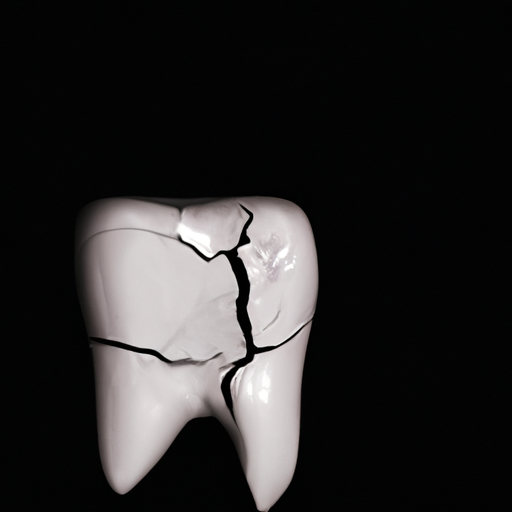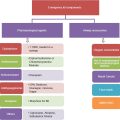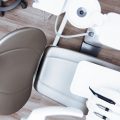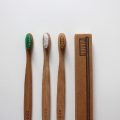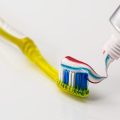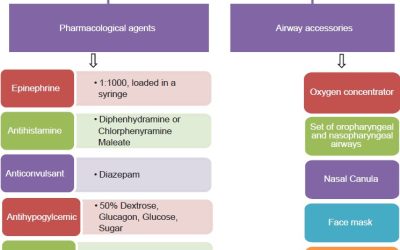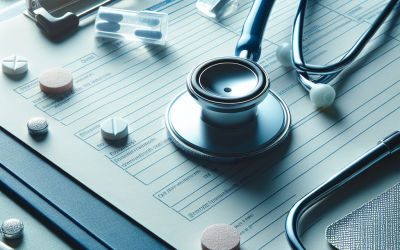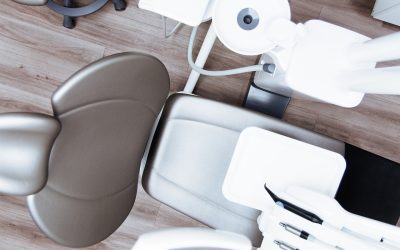So you’re sitting on the couch, enjoying a relaxing evening, when suddenly you bite into something and your tooth cracks. Or maybe you wake up one morning with unbearable tooth pain that just won’t go away. In moments like these, it’s important to know what constitutes a dental emergency. From broken teeth to severe oral infections, this article will guide you through the signs and symptoms that indicate a dental emergency, ensuring you know when it’s time to seek immediate dental care. Have you ever found yourself in a dental emergency? Maybe you broke a tooth while biting into a hard piece of candy, or perhaps you woke up in the middle of the night with a throbbing toothache. Dental emergencies can happen to anyone, and knowing how to handle them can make all the difference in preserving your oral health and minimizing pain and discomfort. In this article, we will explore common dental emergencies, emergencies requiring immediate medical attention, non-emergency dental issues, steps to take during a dental emergency, how to prevent dental emergencies, preparing for a dental emergency, when to seek immediate medical attention, benefits of seeking immediate dental care, and answer some frequently asked questions about dental emergencies.
Common dental emergencies
Knocked-out tooth
A knocked-out tooth is a serious dental emergency that requires immediate attention. If this happens to you, don’t panic! There are steps you can take to increase the chances of saving your tooth. First, locate the tooth and handle it carefully, avoiding touching the root. Gently rinse the tooth with water, trying not to remove any attached tissues. If possible, try to reinsert the tooth into its socket, making sure it faces the right way. If this isn’t possible, keep the tooth moist by placing it in a container of milk or saliva. Finally, seek dental treatment as soon as possible to give your tooth the best possible chance of survival.
Broken or chipped tooth
A broken or chipped tooth is another common dental emergency. If you experience this, rinse your mouth with warm water to clean the area. If there is bleeding, apply gentle pressure with a piece of gauze or a clean cloth. To reduce swelling and alleviate pain, apply a cold compress on the outside of your mouth or cheek near the affected tooth. It’s crucial to see a dentist promptly in this situation, as they can determine the extent of the damage and recommend appropriate treatment.
Severe toothache
A severe toothache can be excruciating and greatly impact your daily life. If you’re experiencing a toothache, rinse your mouth with warm water to clean the area. Then, gently floss around the affected tooth to remove any trapped food particles that may be causing the pain. You can also take over-the-counter pain medication to temporarily alleviate the discomfort. However, it’s important to understand that a severe toothache may indicate a more significant underlying issue, such as an infection or tooth decay. Therefore, it’s crucial to schedule an appointment with your dentist to address the root cause of the pain.
Loose tooth
If you suddenly notice a loose tooth, it’s essential not to ignore it. A loose tooth can be a sign of an underlying dental issue, such as gum disease or trauma. In some cases, a loose tooth may not require immediate attention, especially in children who are losing their baby teeth. However, for adults, a loose permanent tooth typically needs to be evaluated by a dentist. While awaiting your dental appointment, you can gently try to push the tooth back into its original position with very light finger pressure. However, if this causes pain or discomfort, it’s best to leave it alone and not force it.
Lost dental filling or crown
Losing a dental filling or crown can be uncomfortable and leave the affected tooth vulnerable to further damage. If you lose a dental filling, you can temporarily fill the cavity with sugarless gum or dental cement, which can be purchased at a pharmacy. If a dental crown comes loose, you can try to reattach it using dental adhesive or denture adhesive. However, it’s crucial to schedule an appointment with your dentist as soon as possible to have the filling or crown replaced or reattached professionally.
Emergencies requiring immediate medical attention
While some dental emergencies can wait until regular office hours, others require immediate medical attention. It’s important to recognize these situations and seek help promptly to prevent further complications.
Excessive bleeding
If you experience excessive bleeding in your mouth or gums that doesn’t subside after applying gentle pressure for a few minutes, it’s crucial to seek immediate medical attention. Excessive bleeding can indicate a severe underlying issue, such as trauma or an advanced stage of gum disease. A dentist or medical professional can assess the situation and take the necessary steps to stop the bleeding.
Facial or oral trauma
Facial or oral trauma, such as a broken jaw or severe damage to the teeth and surrounding tissues, requires immediate medical attention. If you’re involved in an accident that results in facial or oral trauma, it’s important to call emergency services or go to the nearest emergency room for evaluation and treatment.
Severe swelling or infection
Severe swelling or infection in the mouth or face should never be ignored. If you experience these symptoms, especially if they are accompanied by fever and difficulty swallowing or breathing, it’s vital to seek immediate medical attention. These signs may indicate a severe infection or abscess that requires urgent treatment to prevent the spread of infection to other parts of the body.
Difficulty breathing or swallowing
Any difficulty breathing or swallowing should be treated as a medical emergency. If you feel as though your airway is compromised or if you have difficulty swallowing due to pain or swelling, seek immediate medical attention. Don’t hesitate to call emergency services or go to the nearest emergency room for evaluation and treatment.
Non-emergency dental issues
Not all dental issues require immediate attention, and there are situations where you can manage the problem at home while waiting for your next dental appointment.
Mild toothache
A mild toothache can be caused by a variety of factors, such as tooth sensitivity or a small cavity. If you’re experiencing a mild toothache, you can try rinsing your mouth with warm saltwater to alleviate any inflammation. Over-the-counter pain medication can also help temporarily relieve the pain. However, it’s important to schedule a dental appointment to address the underlying cause of the toothache and prevent it from worsening.
Minor chips or cracks
Minor chips or cracks in the teeth may not require immediate attention, especially if they don’t cause any pain or discomfort. However, it’s essential to have a dentist evaluate the damage to determine if any treatment is necessary. Your dentist can recommend options such as dental bonding or veneers to improve the appearance and strength of the affected tooth.
Lost temporary crown
If a temporary crown falls off, it’s generally not considered an emergency. However, it’s important to keep the area clean and avoid chewing on that side of your mouth until you can see your dentist for a replacement. You can also use over-the-counter dental cement to temporarily reattach the crown until you can be seen by your dentist.
Food stuck between teeth
Having food stuck between your teeth can be uncomfortable and even painful. To remove the food debris, try using dental floss or an interdental brush. Gently slide the floss or brush between your teeth and move it back and forth to dislodge the food particles. Be careful not to force it or use sharp objects that could damage your gums. If you’re unable to remove the food yourself or if the discomfort persists, consult your dentist for assistance.
Steps to take during a dental emergency
During a dental emergency, it’s important to stay calm and take the appropriate steps to manage the situation until you can receive professional dental care. Here are some steps to follow during a dental emergency:
Assess the situation
The first step is to assess the situation and determine the severity of the dental emergency. Is there excessive bleeding, severe pain, or a knocked-out tooth? Understanding the extent of the emergency will help you prioritize the necessary actions to take.
Control bleeding
If there is bleeding, gently rinse your mouth with warm water to clean the area. Then, apply gentle pressure with a clean cloth or gauze to the affected area to control the bleeding. If the bleeding persists or is excessive, seek immediate medical attention.
Save knocked-out teeth
If a tooth is knocked out, it’s crucial to act quickly to increase the chances of saving it. Handle the tooth carefully, avoiding touching the root. If possible, try to reinsert the tooth into its socket, making sure it faces the right way. If this isn’t possible, place the tooth in a container of milk or saliva to keep it moist. Seek dental treatment as soon as possible, ideally within one hour, as time is critical for successful reattachment.
Preserve broken tooth fragments
If a tooth is broken or chipped, try to locate any broken tooth fragments. Rinse them gently with water and keep them moist in a container of milk or saliva. These fragments may be used to restore the tooth or guide the dentist in determining the appropriate treatment.
Manage pain and swelling
To manage pain and swelling, apply a cold compress on the outside of your mouth or cheek near the affected tooth or area. This can help reduce inflammation and temporarily alleviate discomfort. Over-the-counter pain medication, such as ibuprofen or acetaminophen, can also be taken according to the package instructions. However, it’s important to remember that pain relief is temporary and that seeing a dentist is essential to address the underlying cause of the pain.
Preventing dental emergencies
While dental emergencies can happen unexpectedly, there are steps you can take to minimize the risk and prevent certain emergencies from occurring. Here are some preventive measures to consider:
Practice good oral hygiene
Maintaining good oral hygiene is crucial in preventing dental emergencies. Brush your teeth at least twice a day with fluoride toothpaste and floss daily to remove plaque and food debris. Regularly visiting your dentist for check-ups and cleanings can also help identify and address any potential dental issues before they become emergencies.
Wear a mouthguard
If you participate in contact sports or activities that pose a risk of dental injury, wearing a mouthguard is essential. A properly fitted mouthguard can help protect your teeth and gums from trauma and reduce the risk of dental emergencies.
Avoid biting hard objects
Avoid biting on hard objects, such as ice, hard candies, or pencils, as this can damage your teeth and potentially lead to a dental emergency. Be mindful of your eating habits and opt for healthier alternatives or treats that are easier on your teeth.
Attend regular dental check-ups
Regular dental check-ups are not only important for maintaining good oral health but also for preventing dental emergencies. Your dentist can detect any early signs of dental issues, such as tooth decay or gum disease, and provide appropriate treatment before they progress to emergencies.
Address dental issues promptly
If you experience any dental symptoms, such as tooth sensitivity, pain, or swelling, it’s crucial to address them promptly. Ignoring these signs can lead to further complications and potentially result in a dental emergency. Contact your dentist as soon as possible to schedule an appointment and determine the appropriate course of action.
Preparing for a dental emergency
While we hope you never have to face a dental emergency, it’s always wise to be prepared. Here are some steps you can take to be ready for a dental emergency:
Find an emergency dentist
Research and identify emergency dentists in your area. Keep their contact information readily available so that you can reach out to them immediately in case of an emergency. Having this information at hand can significantly save time and ensure prompt treatment.
Assemble a dental emergency kit
Prepare a dental emergency kit containing essential items such as gauze, dental wax, a small container with a lid, over-the-counter pain medication, and dental adhesive or denture adhesive. Store this kit in a convenient place so that it’s easily accessible in case of a dental emergency.
Know your dental insurance coverage
Familiarize yourself with your dental insurance coverage and understand what costs may be covered during a dental emergency. Having this knowledge can help you make informed decisions and prevent any surprises when it comes to the financial aspect of emergency dental care.
Keep emergency contact information handy
In addition to your emergency dentist’s contact information, ensure that you have emergency contact information stored in your phone or written down somewhere easily accessible. This can include emergency services, your primary healthcare provider, and any other relevant emergency contacts.
When to seek immediate medical attention
While dental emergencies often require dental care, there are situations when immediate medical attention is necessary. Here are some signs that indicate the need for immediate medical attention:
Severe head or facial trauma
If you experience severe head or facial trauma, it’s crucial to seek immediate medical attention. This can involve injuries to the jaw, head, or face that require evaluation and treatment by a medical professional.
Uncontrolled bleeding
If you’re experiencing uncontrolled bleeding that doesn’t subside after applying pressure for a few minutes, seek immediate medical attention. This can be a sign of a severe injury or a medical condition that requires immediate intervention.
Difficulty breathing or swallowing
Any difficulty breathing or swallowing should be treated as a medical emergency. If you’re experiencing these symptoms, call emergency services or go to the nearest emergency room immediately.
Severe infection or abscess
A severe infection or abscess can cause significant pain, swelling, and fever. If you suspect you have a severe infection or abscess, seek immediate medical attention to prevent the spread of infection and receive appropriate treatment.
Benefits of seeking immediate dental care
Seeking immediate dental care during a dental emergency offers several benefits, including:
Preserves oral health
Prompt treatment during a dental emergency can support the preservation of your overall oral health. Addressing the issue quickly can prevent further damage, reduce the risk of complications, and increase the chances of successful treatment outcomes.
Prevents unnecessary pain and discomfort
Dental emergencies often involve pain and discomfort that can significantly impact your quality of life. Seeking immediate dental care means you can receive timely pain relief and treatment, reducing or even eliminating unnecessary pain and discomfort.
Reduces the risk of complications
By addressing a dental emergency immediately, you can minimize the risk of complications. Untreated dental emergencies may lead to more severe infections, irreversible damage, or tooth loss. Seeking timely care can help prevent these complications from occurring.
Saves natural teeth if possible
In cases of a knocked-out tooth or broken tooth, immediate dental care increases the likelihood of saving the natural tooth. The faster you act, the higher the chances of successful reattachment or restoration. Saving your natural teeth can have long-term benefits for your oral health and overall well-being.
Frequently asked questions about dental emergencies
What should I do if I have a knocked-out tooth?
If you have a knocked-out tooth, there are steps you can take to increase the chances of saving it. First, handle the tooth carefully, avoiding touching the root. Rinse it gently with water, making sure not to remove any attached tissues. If possible, try to reinsert the tooth into its socket, facing the right way. If this isn’t possible, keep the tooth moist by placing it in a container of milk or saliva. Seek dental treatment as soon as possible for professional evaluation and reattachment.
How much does emergency dental care cost?
The cost of emergency dental care can vary depending on several factors, such as the nature of the emergency, the necessary treatments, and your dental insurance coverage. It’s best to contact your emergency dentist in advance to discuss their fees and any potential out-of-pocket expenses. Understanding your dental insurance coverage can also help you estimate the costs associated with emergency dental care.
Can a cracked tooth be saved?
Whether a cracked tooth can be saved depends on the extent and location of the crack. In some cases, a cracked tooth can be repaired with dental bonding, a crown, or a root canal treatment. However, if the crack is severe and extends below the gumline, extraction may be necessary. It’s important to consult your dentist who can evaluate the crack and recommend the most appropriate course of treatment.
Is a toothache considered a dental emergency?
A toothache can range from mild discomfort to severe pain, and the intensity alone doesn’t necessarily determine if it’s a dental emergency. However, if the toothache is severe, persists for more than a day or two, or is accompanied by other symptoms such as fever or swelling, it’s important to seek dental attention. A severe toothache may indicate an underlying issue that requires immediate treatment to prevent further complications.
Conclusion
Dental emergencies can be stressful and painful, but understanding how to handle them can make all the difference in preserving your oral health. From knocked-out teeth to severe swelling, it’s important to know when to seek immediate medical attention and when to address the issue at your next dental appointment. By practicing good oral hygiene, wearing a mouthguard, and addressing dental issues promptly, you can minimize the risk of dental emergencies. Additionally, being prepared for a dental emergency with the right contact information and an emergency kit can save valuable time in critical situations. Seeking immediate dental care not only preserves your oral health but also prevents unnecessary pain, reduces the risk of complications, and increases the chances of saving natural teeth. Remember, dental emergencies can happen to anyone, so it’s important to be prepared and seek timely care when needed.
